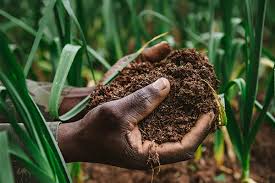The Federal Government says it is intensifying efforts to achieve food security through all-year-round farming, a major step toward boosting national food production and curbing reliance on imports.
Minister of State for Agriculture and Food Security, Sen. Aliyu Abdullahi, disclosed this on Thursday in Abuja during a ministerial briefing to mark the 2025 World Food Day, themed “Hand in Hand for Better Food and a Better Future.”
Abdullahi said the government’s 2025 Wet Season Agricultural Performance Survey showed steady growth in Nigeria’s agricultural output, particularly in the production of rice, maize, sorghum, millet, cowpea, yam, and cassava.
Related Posts:
- Farmers in Eastern Equatoria Shift to…
- Harvesting the Sun: Adamawa’s Farmers Embrace Solar…
- Nigeria Turns to Resilient Seeds as Climate…
- Liberia’s Farmers Face Growing Challenges from…
- As Poverty Locks Children Out of School, This…
Powered by Contextual Related Posts
According to him, all the crops recorded higher yields compared to 2024, owing to increased cultivation, improved farming practices, and the resilience of farmers across major producing states.
“These gains have reinforced food security and sustained agro-industrial value chains across the country,” the minister said.
He announced that the Federal Government had commenced a Dry Season Initiative targeting the cultivation of 500,000 hectares of farmland. The initiative’s first phase focuses on wheat production in 15 states, while the second phase will include rice, maize, and cassava.
Abdullahi explained that the government is also accelerating industrial transformation in the agriculture sector through the Special Agro-Industrial Processing Zones (SAPZ) — a five-year programme supported by the African Development Bank (AfDB) and other partners.
The first phase of the SAPZ project, he said, covers Kaduna, Cross River, Kano, Kwara, Imo, Ogun, Oyo, and the FCT, with implementation already underway in Kaduna and Cross River States since April 2025.
“Through the SAPZ project, Nigeria aims to accelerate its shift toward an agro-industrial economy, promote value addition, reduce post-harvest losses by 80 per cent, and create sustainable jobs,” Abdullahi said.
The minister also revealed that the government had unveiled plans to strengthen the National Strategic Food Reserve to ensure adequate stockpiling of essential commodities and safeguard the country from potential food crises.
“This measure will help stabilise food prices, ensure steady supply, and reduce dependence on imports,” he explained.
Abdullahi noted that the strengthened reserve system would protect both consumers and farmers from extreme price fluctuations in the market.
Meanwhile, the Minister of Livestock Development, Alhaji Idi Maiha, said the establishment of the new Livestock Ministry was aimed at transforming the sub-sector into a modern, economically viable industry.
“We are here to synergise and partner with the Ministry of Agriculture because our efforts are complementary,” Maiha said.
As part of activities marking the event, farm inputs such as sprayers, organic fertilisers, and water pumps were distributed to women farmers’ organisations, young farmers’ clubs, and farmers’ cooperatives to support productivity and food security efforts nationwide.




